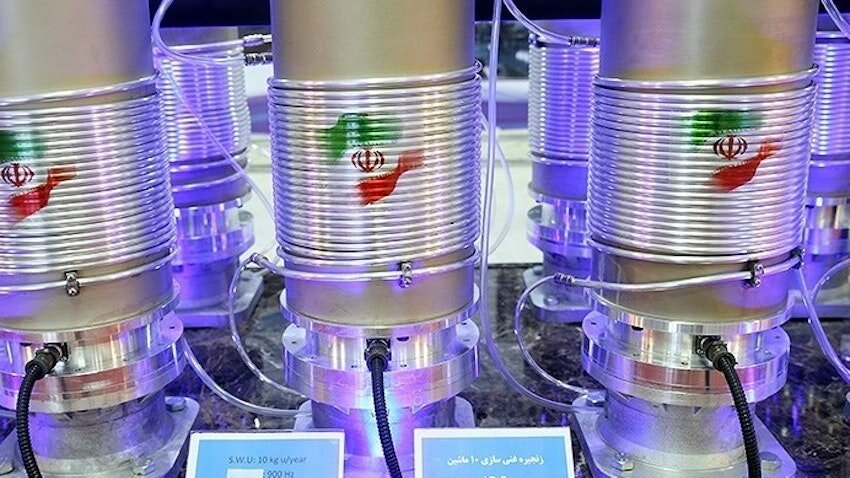Iran’s right to enrich uranium: A legal reality made political by US

TEHRAN – Amid the ongoing tensions surrounding Iran’s nuclear program, one crucial fact often gets buried beneath heated political arguments: Iran, as a member of the Nuclear Non-Proliferation Treaty (NPT), holds an explicit legal right to enrich uranium for peaceful purposes.
The continued U.S. insistence that Iran abandon enrichment activities not only contradicts international law but also undermines global diplomatic norms that Washington claims to advocate.
Established in 1970, the NPT serves as the cornerstone of global nuclear policy. Article IV clearly states that all signatory nations have the "inalienable right" to develop nuclear technology for peaceful applications without discrimination.
Meanwhile, Iran has consistently stated that its uranium enrichment is intended solely for energy production and medical purposes. Typically, uranium enrichment levels around 3% to 5% are necessary for nuclear power. Although recent reports from the International Atomic Energy Agency (IAEA) indicate Iran has increased its enrichment to higher levels, international law does not explicitly prohibit enrichment itself, provided it remains for civilian purposes.
U.S. stance: A political, not legal argument
The U.S. claims Iran's enrichment poses a proliferation risk and demands a complete halt. However, this stance is fundamentally political and lacks strong legal justification.
The Trump administration’s withdrawal from the JCPOA in 2018, despite Iran’s initial full compliance, significantly damaged diplomatic credibility. Recent indirect negotiations mediated by Oman, along with high-profile visits to West Asia by former President Donald Trump and his envoy Steven Witkoff, highlight the complexity of these discussions.
One of the important points that should be mentioned here is that the U.S. negotiators knew from the outset that uranium enrichment represents an uncompromising "red line" for Iran. Initiating talks under conditions demanding a halt in enrichment was unrealistic and demonstrates either a lack of understanding or disregard for Iran’s firm diplomatic stance.
Double standards and diminishing trust
U.S. credibility is further undermined by apparent double standards. Countries like Brazil, Argentina, Germany, and Japan all have uranium enrichment programs under IAEA supervision without facing similar scrutiny or pressure. Subjecting Iran uniquely to intense pressure based on geopolitical factors weakens the integrity of the global non-proliferation system.
If rights granted by the NPT become selectively applied based on political alliances and agendas, the entire framework could collapse. Nations would see little reason to adhere to non-proliferation and disarmament norms if they perceive that these rights can be arbitrarily revoked.
For Iran, uranium enrichment goes beyond civilian purposes, offering vital strategic leverage and acting as a deterrent. Given regional tensions, Iran views its nuclear capabilities as crucial to national security, making U.S. demands for complete cessation strategically unrealistic and politically impossible.
Iran’s peaceful nuclear program: A sovereign right
As said before, Iran’s unwavering pursuit of a peaceful nuclear program is not merely a policy choice; it is an inalienable right, firmly rooted in international law and a matter of national sovereignty. As a committed signatory to the NPT, Iran has consistently affirmed its entitlement to develop, research, produce, and utilize nuclear energy for peaceful purposes, without discrimination. This right, enshrined in Article IV of the NPT, is a fundamental principle of global non-proliferation, and Tehran's consistent adherence to its obligations, including rigorous inspections by the International Atomic Energy Agency (IAEA), underscores its transparency and commitment to a non-military nuclear future.
To demand that Iran abandon its legitimate enrichment activities is to deny a sovereign nation its rightful place in the global scientific and technological community. Iran has invested decades and considerable national resources, including enduring unjust sanctions and the sacrifices of its brightest scientists, to achieve self-sufficiency in its nuclear fuel cycle. This drive for indigenous capability is not born of a desire for weapons, but from a painful history where external promises of nuclear fuel supply for even medical reactors proved unreliable. Therefore, the ability to enrich uranium domestically is viewed as a critical guarantee against future dependence and a testament to national resilience.
Ultimately, Iran's peaceful nuclear program is a symbol of its independent spirit and its dedication to scientific progress. It serves as a vital component of its national security doctrine, providing a deterrent against potential aggression without seeking to develop nuclear weapons, which are explicitly forbidden by religious decree from Iran’s Leader. Any attempts to curtail Iran's legitimate nuclear rights not only contradict international law but also ignore the profound domestic consensus and national resolve to maintain this crucial aspect of Iran's technological and strategic independence.
Leave a Comment